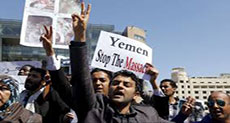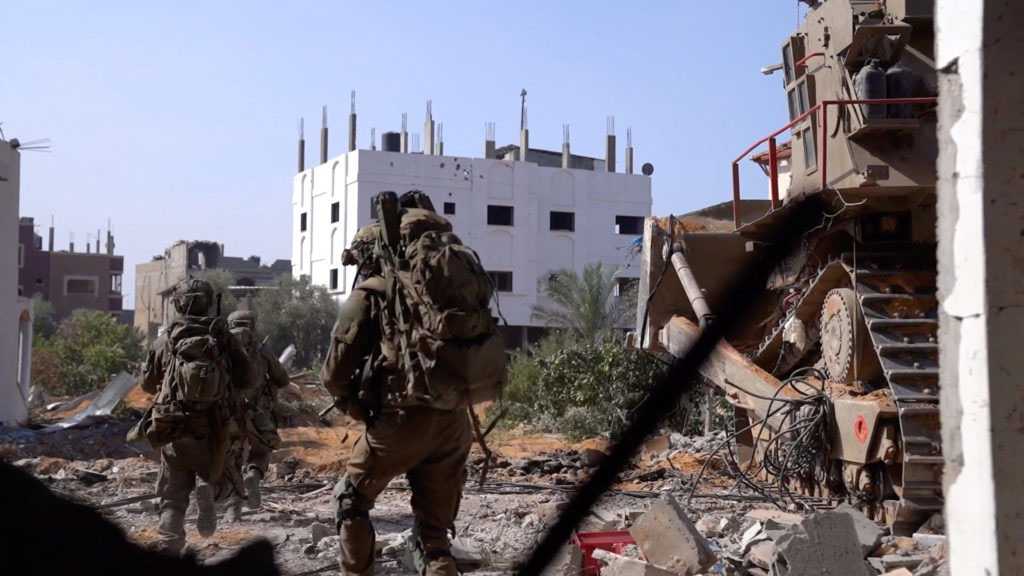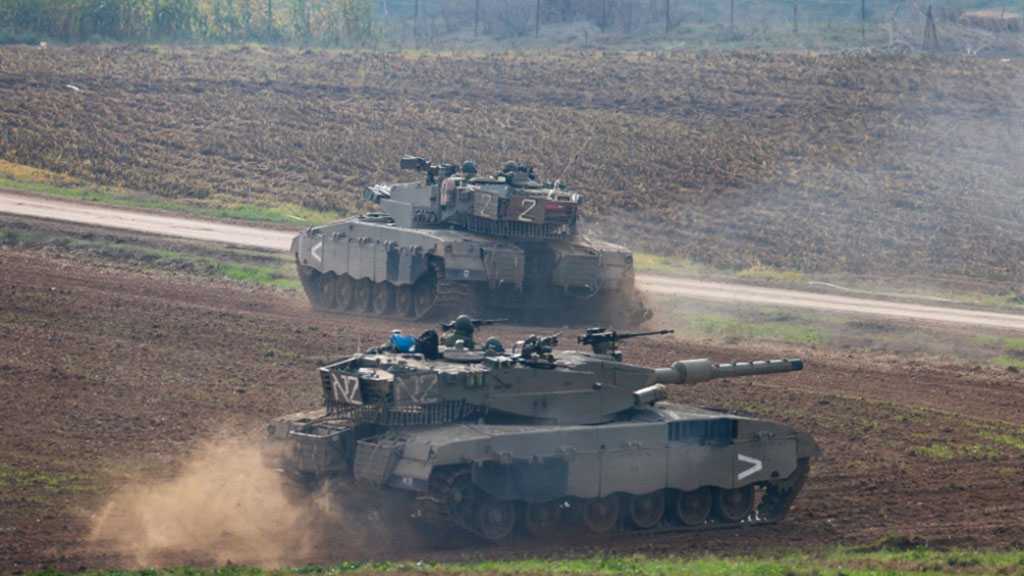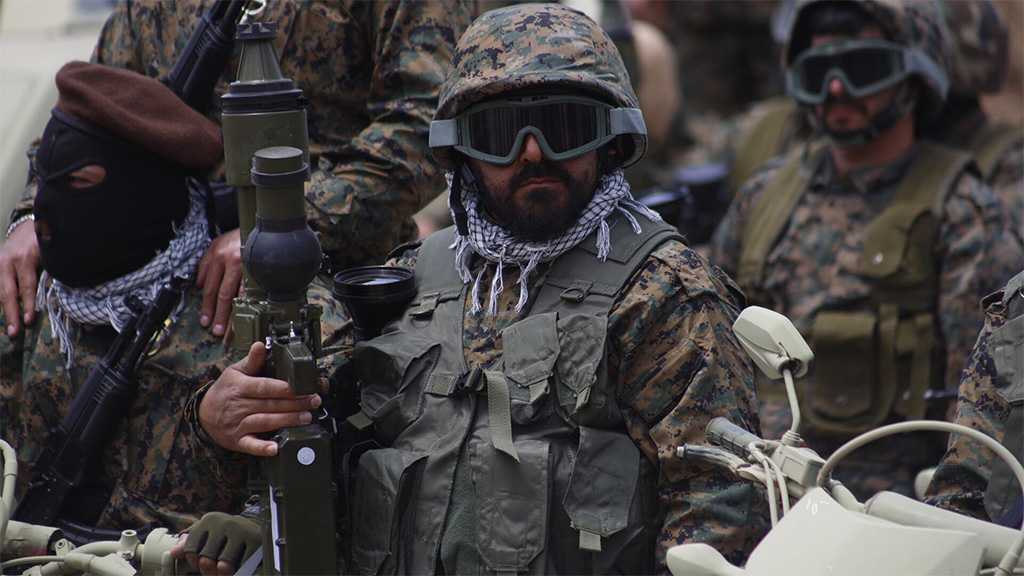
The West Admits to Saudi’s Failure in Yemen: Political Resolution with ‘Ansarullah’, Iranian Participation

Al Akhbar Newspaper
The last few hours witnessed significant developments that revealed the birth of a political movement around the Yemeni Crisis. Optimism remains constrained by the ambitions of Al Saud on one hand, and their common concerns with the US administration from investing the Russian achievements in Syria in the Yemeni File on the other hand, leaving the doors open for more Saudi Arabian crimes.

The latest regional developments, in addition to the Saudi alliance's military operations in Yemen, have influenced on the political track of the Yemeni Crisis. These last hours carried significant developments highlighted by statements from large capitals about the possibility of ending the eight month long aggression. This novel movement emerged as a result of the latest regional variables, and from the Russian military participation in Syria in particular, which came to be reflected in the hasty setting of a date for the Yemeni talks in the middle of this month, despite the absence of guarantees of the success of this movement, taking into account the American emphasis on preventing the investment of Syrian Russian achievements in Yemen as in Iraq.
The first public signs of this movement were reflected by the statements of the Saudi Foreign Minister Adel al-Jubeir and his British counterpart Philip Hammond. Al-Jubeir discussed during a press conference with Hammond several "indications" that indicate an end of military operations, which in his opinion are "the acceptance of the Houthis and [Former President] Ali Abdullah Saleh of the UN Security Council Resolution 2216 and engage in the United Nations talks on this basis", adding that "we also see the achievements gained on the ground, as most Yemeni territory that the rebels had seized have been regained". As for Hammond, he confirmed that the military operations in Yemen "are coming to an end".
"We notice that the military phase of this campaign is nearing its end, because the coalition forces now have a dominant military standing in the country", Hammond added after his talks with King Salman and Saudi Officials.
Unannounced Backgrounds Hidden Intentions
Concerned Yemeni sources revealed to "Al Akhbar" some information that place Saudi Arabia and the West closer to reviving the political track, notably the United States' admission of the importance of Iran's presence in any regional negotiations about Syria [Statements of State Department Spokesman, John Kirby]. It is the same regional framework that requires the participation of Iran in any talks related to the Yemeni crisis. Hammond also stated to regional officials before the meeting in Vienna that the West informed Riyadh that "the time they requested for the completion of a certain military standing in Yemen is over", and the continuation of the war "may lead to complications that Saudi Arabia may not be able to contain".
In the same context, Riyadh, Paris, and London agreed that Iran will be a partner in any talks in this regard, where the Islamic Republic is the only external party that has a serious impact on "Ansarullah" according to the belief of the previously mentioned forces. However, the Saudis asked for a more significant Russian presence in the negotiations about Yemen "because they do not trust the Iranians" according to the sources.
The sources also relayed the confirmation of Saudi officials in front of British and Russian officials that the war on Yemen "exhausted Saudi Arabia", which necessitates that they quickly exit this war that economically burdened Riyadh, to coincide with the increase of the disputes between the members of the ruling family on the war entering its eighth month without real results.
Western capitals informed Riyadh of their concerns regarding the deterioration of the situation in the south of Yemen, where the government of Abed Rabbo Mansour Hadi has not been able to hold any political or services establishment. These countries were officially informed by the Emirates that there is no party controlling the security situation in the South, and that "al-Qaeda" and "ISIS" are competing for power.
Westerns and UAE officials spread incidents of the worsening chaos in the South. To name a few, the departure of the Prime Minister of Hadi's government Khaled Bahah from Aden quickly after it was targeted by "ISIS" after restricting his movement, in addition to the problems raised by the appointment of Nayef al Bakri as governor of Aden, delayed salary payment in the city, and the intervention of extremist organizations in public life with the attempt to impose separation between male and female students at universities in Aden.
The Western ally had explicitly informed Saudi Arabia that what Riyadh considers "an achievement in its seizing control of the south is chump change for the other side", especially since the South is today under "al-Qaeda" control. Westerners also interacted positively with the decision of Ansarullah to "accept international resolutions", which helped them make Riyadh and Abu Dhabi understand that any political process will not witness any success without parternship with "Ansarullah" and "the General People's Congress".
Expulsion and Negotiations
These attitudes reflected on the behavior of Saudi Arabia in several of its steps:
First, the Saudis raised the level of meetings with the international envoy Ismail Ould Cheikh, after UN Secretary General Ban Ki Moon was vexed by the marginalization of the role of Ould Cheikh and Riyadh ignoring him [Ould Cheikh], which resulted in the UN envoy meeting Mohammad bin Nayef and Mohammad bin Salman.
Second, the agreement on preparing for an extended negotiations session with the participation of the Yemeni Parties, while the possible participation of regional and international parties thereat is being studied as well. The session will be held on the 15th of the next month under the auspices of the United Nations. It has not yet been decided if the session will be held in Muscat or Geneva.
"Al-Akhbar" has learned that the negotiations will start from resolution 2216, without prior conditions, and with the consideration that "Ansarullah" is a key component of Yemeni political life, which Hammond recently conveyed to al-Jubayr. However, what worries Riyadh most about the future of any solution in Yemen is what they openly said in front of mediators, that they want "definite guarantees that Houthis will not pose a threat to Saudi National Security", and this phrase was translated later on in the form of a request "disarming the Yemeni army and ‘Ansarullah' of their missile force", with a guarantee from "great powers" that this request will be fulfilled, in reference to Russia and Iran".
But why was the date of the talks scheduled after two weeks?
Some sources following this newfound political activity say that the West has decided to give Saudi Arabia and its allies a final deadline in which it would conduct a field tour which aims to achieve results that would affect the negotiations. In this context, there's talk of a major operation expected in the provinces of Maarib and Taiz, which have witnessed an alliance airdrop the night before last. Saudi officials paid one of the main tribal leaders in the border region of Al-Jawf, north Yemen, 800 million Rials in order to buy the votes of the tribal leaders in the province, promising them that Al-Jawf would fall without clashes, if they would declare loyalty to the "legitimacy of Hadi".



